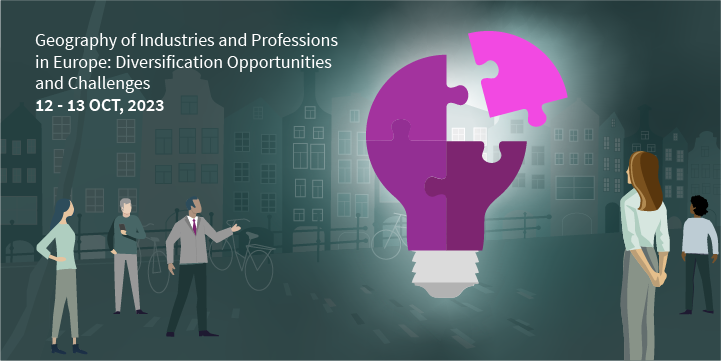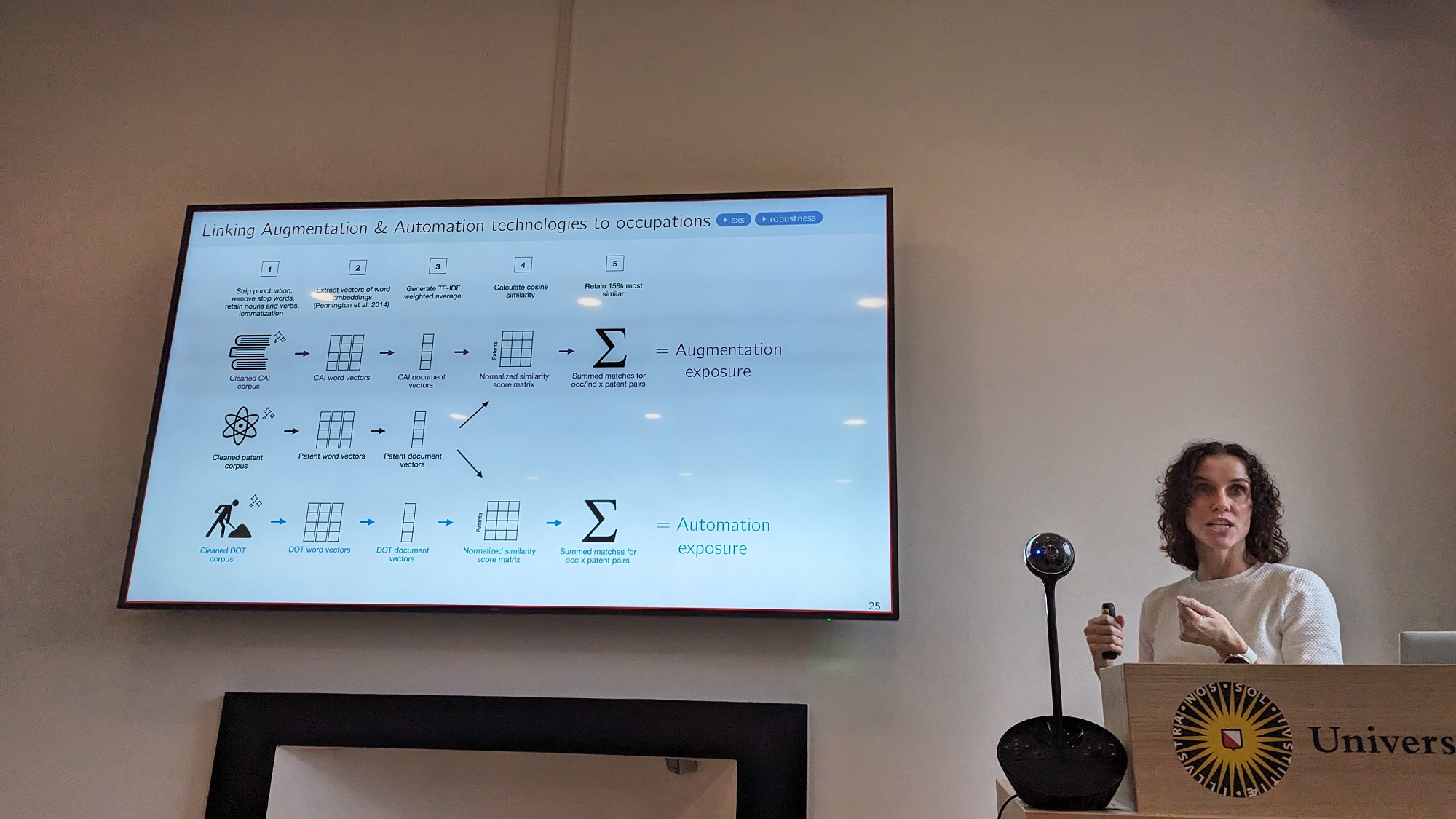Pillars Workshop: Geography of Industries and Professions in Europe - Diversification Opportunities and Challenges
The Pillars Utrecht workshop “Geography of Industries and Professions in Europe: Diversification Opportunities and Challenges” organized jointly organized by Utrecht University and the Technopolis Group was a great success. We discussed the profound implications of digital automation technologies, such as artificial intelligence and robotics, on regional labour markets. It was attended by more than 50 participants, including scholars, policy makers and industry professionals.

In the afternoon of October 12th, Ekaterina Prytkova (University of Sussex) kicked off the workshop presenting the work linking emerging digital automation technologies with occupations and industries based on semantic similarity applying natural language processing. She highlighted that occupations that are highly exposed to automation are associated with negative employment growth in industries using these technologies but with positive employment growth in industries producing those technologies. Deyu Li (Utrecht University) further linked the automation exposure with the within-occupation skill changes, showing that occupations that are highly exposed to automation technologies are more likely to experience larger change in their skill portfolio by acquiring complementary skills. Giacomo Domini (Utrecht University) presented a work focusing on the impact of automation adoption on firm export performances. He suggested a positive impact of automation adoption on export performance but significant heterogeneities across industries and technologies. Anna Salomons (Utrecht University) presented her work with David Autor (MIT) on the labour automating and augmenting innovations on the emergence of new work and occupational labour demand over the last eight decades, highlighting the important role of labour augmenting innovations and demand shocks that increasing occupational labour demand in the new work emergence.

After a short coffee break, the workshop continued. Hans Koster (Vrije University Amsterdam) presented his work with Daron Acemoglu (MIT, NBER) on the adoption of robots and hourly wage of workers in the Netherlands, suggesting uneven impacts of robotization on workers within firms and across firms within the same industry. Maria Savona (University of Sussex and LUISS University) presented a paper focusing on the technological cycles and European labour markets. She highlighted the importance of short-run impact of technological adoptions and the phase of adoption. Ulrich Zierahn-Weilage (Utrecht University) focused on the adoption of industry 4.0 technologies on the task shifts of German firms. They highlighted the importance of between-firm heterogeneity in de-routinization. To conclude the first half-day of the workshop, Dongmiao Zhang (University) presented her work on the complex intelligence which highlighted the importance of occupation skill complexity in moderating the impact of AI adoption on wage growth.
The morning session on October 13th was dedicated to policy issues with policy markers from the Netherlands. Chiel Scholten (Technopolis), Jonathan Puerta Pereira (Technopolis) and Ana Oliveira (Utrecht University and UNU-MERIT) presented the results of Delphi Survey on Emerging Automation Technologies, Industries, Tasks and Skills designed and conducted by the PILLARS project team led by Tommaso Ciarli (UNU-MERIT) and Ana Oliveira (Utrecht University and UNU-MERIT). In a lively fashion, they engaged the participants in discussing and validating the results from the Delphi Survey. After a short coffee break, Pierre-Alexandre Balland (Utrecht University) gave an intriguing talk on AI and future work. He highlighted the importance of government policy in regulating and promoting the development and the penetration of open source AI across different industrial sectors. After his presentation, participants had an rich discussions on how Europe can better seize the windows of opportunities in the open source AI.
To sum up, the presentations at the workshop sparked rich discussions that yielded valuable policy recommendations. Participants actively engaged in discussions, contributing diverse perspectives and proposing measures for governmental and corporate entities to leverage these emerging innovations in the best way possible.
Photo 1: Ana Salomons
Photo 2 (starting top left then clockwise): Maria Savona, Dongmiao Zhang, Ulrich Zierahn-Weilage, Ana Oliveira
